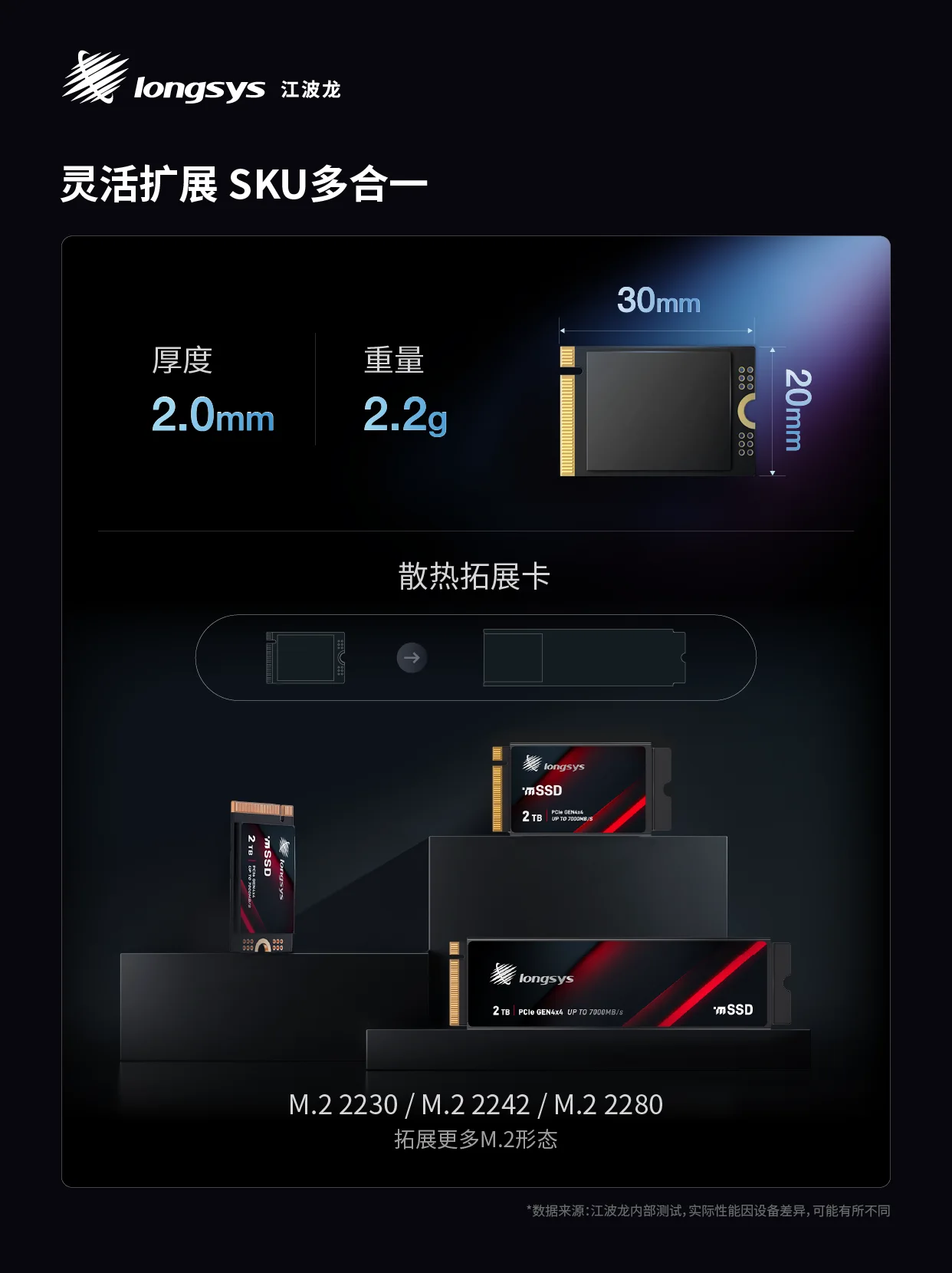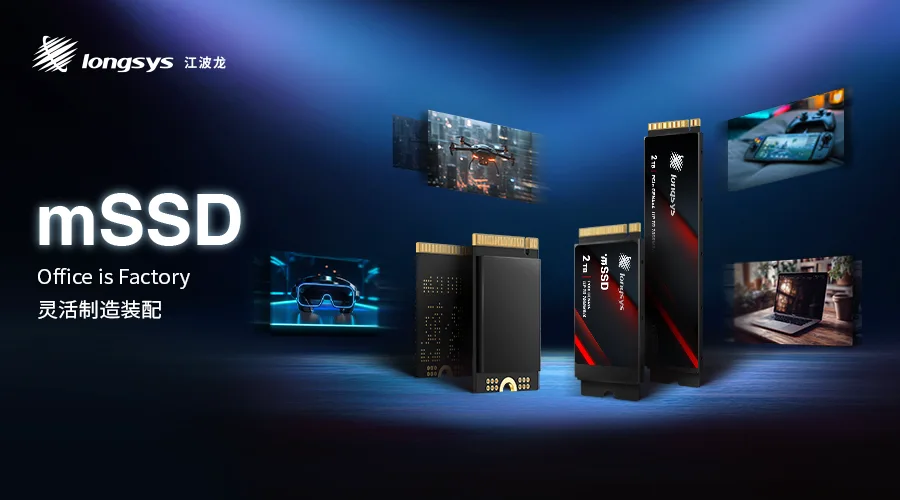Chinese memory company Longsys has announced the industry’s first integrated-packaging micro SSD (mSSD), a storage device that eliminates traditional printed circuit board (PCB) assembly through wafer-level System-in-Package (SiP) technology.
The mSSD integrates the controller chip, NAND flash memory, power management integrated circuit (PMIC), and passive components such as resistors and capacitors into a single package body. This approach consolidates components that would normally require assembly on a PCB, reducing the traditional SSD’s nearly 1,000 solder joints to zero.
According to IT Home’s coverage (in Chinese), this design addresses common reliability issues in PCB-based SSD production, including solder mask contamination, component collision risks, and exposure to high temperature, humidity, and corrosive conditions. The integrated packaging approach is particularly relevant for compact form factors like M.2 2242 and M.2 2230, where PCB space is limited.
Longsys claims the integrated packaging elevates SSDs from PCBA quality levels to chip packaging quality standards, reducing defect rates from ≤1000 DPPM (defects per million) to ≤100 DPPM. The manufacturing process simplifies the traditional supply chain by eliminating multiple steps including PCB placement, reflow soldering, and inter-facility transfers that would typically occur across separate NAND, controller, and PMIC packaging facilities before final SMT assembly.
The company states this streamlined production increases delivery efficiency by more than 100% and reduces overall additional costs by over 10%. The direct manufacturing approach also avoids the high-energy SMT processes, which Longsys positions as addressing environmental concerns for customers with sustainability requirements.
Physical Specifications and Performance

The mSSD measures 20×30×2.0 mm and weighs 2.2 grams. Despite its compact dimensions, the device supports PCIe Gen4×4 interface standards with the following performance specifications:
- Sequential read: up to 7,400 MB/s
- Sequential write: up to 6,500 MB/s
- 4K random read: up to 1,000K IOPS
- 4K random write: up to 820K IOPS
The device utilizes TLC or QLC NAND flash and is available in capacities ranging from 512GB to 4TB. Power consumption meets NVMe protocol L1.2 requirements of ≤3.5mW for low-power states, with peak power consumption also conforming to protocol specifications.
The mSSD comes with an aluminum alloy bracket, graphene film, and high thermal conductivity silicone to manage heat dissipation within its compact form factor. Longsys indicates that this thermal system maintains performance during sustained loads and is designed to remain compatible with ultra-thin devices. According to the company, future PCIe Gen5 mSSDs may get the same treatment with the help of enhanced cooling solutions.
One notable design feature is the inclusion of a modular clip-on heatsink expansion card that allows the base mSSD module to be adapted to M.2 2280, M.2 2242, and M.2 2230 form factors without requiring tools. This “SKU consolidation” approach is positioned as a solution to compatibility challenges and aims to simplify inventory management for system builders and integrators.
Market Context
The compact SSD market has grown significantly in recent years, driven largely by handheld gaming devices like the Steam Deck, ASUS ROG Ally, and similar platforms that utilize the M.2 2230 form factor. These devices, along with ultra-thin laptops and embedded systems, have created demand for smaller, more power-efficient storage solutions.
According to market research, M.2 SSDs led the storage market in 2024 with 42.7% share, which reflects their adoption in both consumer and enterprise applications. As a whole, the overall M.2 SSD market is projected to grow from approximately $8.5 billion in 2023 to $28.7 billion by 2032, meaning a CAGR of 14.6%.
Longsys, founded in 1999 and listed on the Shenzhen Stock Exchange (301308.SZ), is a vertically integrated semiconductor memory enterprise with operations spanning R&D, design, packaging, testing, and manufacturing. The company owns the consumer brand Lexar and has been expanding its capabilities through facilities including the Suzhou Longforce packaging and testing center and the Zilia manufacturing operation in Brazil.
The company says the mSSD has completed development and testing phases and is currently in the mass production ramp-up stage. Some of the target markets for the mSSD are expected to be PC laptops, handheld gaming consoles, drones/UAVs, VR/AR devices, and embedded systems.
